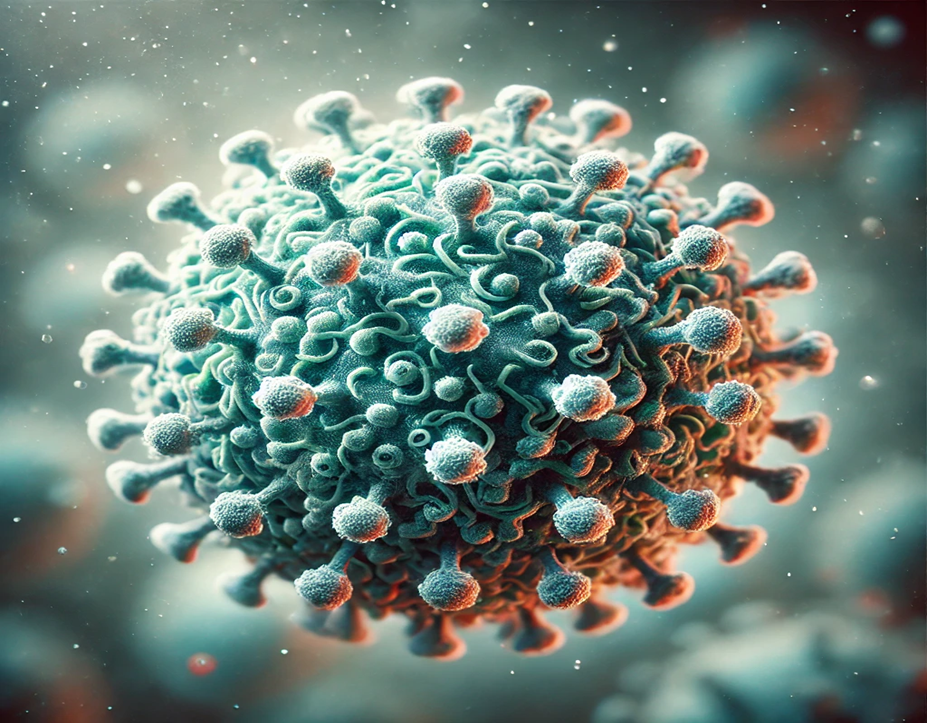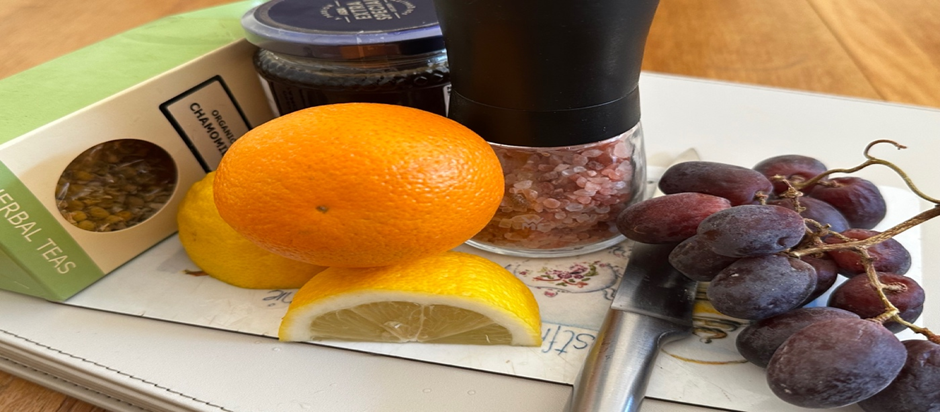Holistic Healing UK Newsletter, March 2025
Viruses and Bacteria; Flu viruses; Types of influenza viruses; Susceptibility and Homeopathy; Vaccines; Vaccines Pro and Cons; Flu Prevention; Flu Remedies.
Viruses and Bacteria
Since its creation, Earth has been teeming with life and naturally resists empty spaces. Viruses and bacteria take advantage of these spaces, thriving and multiplying wherever conditions allow. The COVID-19 virus demonstrated this ability by spreading rapidly and filling available spaces in record time. It was highly virulent and, in some cases, fatal. However, for long-term survival, it had to evolve into a weaker form, allowing its hosts to live. This mutation enabled it to persist year-round and infect individuals’ multiple times, ensuring its continued existence.
Other bacteria and viruses also adapt and evolve uniquely in different regions of the world, constantly changing to survive. In addition to the many undiscovered and unclassified viruses, scientific databases recognize over 9,000 virus species. For bacteria, estimates suggest there are between 10,000 and 20,000 officially classified species—not accounting for the vast number of undiscovered bacteria in diverse environments such as oceans, soil, and the human microbiome. Viruses and bacteria operate at a microbiological level and so too does homeopathy. While viruses seek to attack its host’s immune system, a correctly prescribed homeopathic remedy goes even deeper and can help to protect it.
Flu Viruses
Flu viruses, or influenza viruses, are a type of RNA virus that cause respiratory infections in humans and animals.
Viruses in this family (Orthomyxoviridae) typically have a segmented, negative-sense, single-stranded RNA genome consisting of eight segments. This means their genetic material cannot be directly read by host cells without first being converted. Influenza viruses also possess different surface proteins that help them bind to host cells and release new viral particles, ensuring their spread. When two different influenza viruses infect the same cell, they can exchange genetic segments, leading to new viral strains. This process can contribute to the emergence of epidemics or even pandemics. Influenza viruses have a high mutation rate, allowing them to change gradually over time—a process known as antigenic drift—which is responsible for seasonal flu variations.
Influenza A viruses can jump from animals such as pigs and birds to humans. This spill over introduces new strains that humans have little to no immunity against, increasing the potential for widespread infection.
Types of Influenza Viruses
Influenza A
• Causes seasonal epidemics and pandemics.
• Infects a variety of hosts, including humans, birds, pigs, and other animals.
• Is further divided into subtypes based on surface proteins hemagglutinin (HA) and neuraminidase (NA).
Influenza B
• Primarily affects humans and is responsible for seasonal outbreaks.
• Is not as diverse as Influenza A and does not have subtypes. However, it has two distinct lineages: B-Yamagata and B-Victoria.
Influenza C
• Causes mild respiratory illness.
• Is less common and does not lead to epidemics.
Influenza D
• Primarily affects cattle.
• Is not known to cause disease in humans and is less studied than other influenza viruses.
Susceptibility and Homeopathy
In homeopathy, we recognize that susceptibility to illness is unique to each individual. This susceptibility depends on a person’s overall health and how their body interacts with a virus.
Some individuals may be too weak to mount an immune response, even if they have been infected, as indicated by bloodwork. Their immune system does not react strongly enough, making them unsuitable hosts for the virus. Conversely, those with exceptionally strong immune systems may also show little to no symptoms despite being infected, as their body neutralizes the virus quickly. Without displaying symptoms, these individuals do not spread the virus effectively, making them poor hosts for viral transmission. Because each person has a unique level of health and susceptibility, their immune system responds differently to stressors, whether it be a virus, a vaccine, bacteria, or other environmental factors.
Vaccines
Just as homeopathy follows the principle of "like cures like," modern medicine uses small amounts of a virus in vaccines to protect against infection. However, unlike homeopathic remedies, which are diluted and potentized to ensure safety, vaccines contain active viral components that stimulate the immune system for better or worse.
As with viruses, individual susceptibility plays a role in vaccine response.
• A person with a weakened immune system may not develop a strong response to the vaccine. Their bloodwork may indicate they received it, but their body is unable to mount a sufficient immune reaction.
• A person with a very strong constitution may also have a minimal reaction, with few or no symptoms after vaccination.
• Most individuals, however, will experience an immune response, which may include fever and body aches. These symptoms occur due to the release of cytokines and prostaglandins, which coordinate the immune response but also cause inflammation, pain, and fever.
For some, this immune activation serves as a "spring cleaning" for the body, removing old or damaged cells and improving overall health after recovery. However, in individuals with high susceptibility, the immune response may be overwhelming, leading to severe complications, chronic conditions, or, in extreme cases, death. Unlike vaccines, homeopathic remedies undergo dilution and succussion, leaving only an energetic imprint of the original substance. This process makes them safe while still acting on an atomic level.
Vaccines: Pros and Cons
This topic is both highly controversial and deeply personal.
During the COVID-19 pandemic, many patients in homeopathic practice experienced adverse effects—both from the virus itself and from the vaccine. Some people lost their lives to the virus, while others suffered severe side effects from vaccination.
This is directly linked to individual susceptibility and health status. The effects of both the virus and the vaccine persist long after the initial infection:
• Some individuals developed long COVID, experiencing extreme fatigue and daily functional impairments.
• Others, particularly children, showed significant behavioural changes, such as ADHD-like symptoms, following vaccination.
However, during the pandemic, governments and health organizations had to act quickly, often without ideal solutions. For those who lost loved ones to the virus, vaccination seemed essential. For those who lost loved ones due to vaccine complications, it raised serious concerns. The scientific community remains divided, and more research is needed. Ideally, individuals with weakened immune systems and varying susceptibilities should be assessed before vaccination to tailor dosages or vaccine combinations accordingly. Unfortunately, time constraints during the pandemic made this difficult, and even now, individual differences are often overlooked in public health strategies.
Perhaps the best approach is a combination of both worlds:
• Vaccination to address the broader public health concern.
• Homeopathy to support individual well-being and immune balance.
While the situation was far from perfect, integrating both perspectives may offer the most balanced approach in an imperfect world.
Flu Prevention
Taking the following steps can help to prevent flu to start with:
• Practice good hygiene
• Wash your hands regularly
• Eat nutritious food
• Drink at least eight gasses of water a day
• Get at least eight hours of sleep a night
• Regularly take a good quality multi-vitamin and at least 1000mg vitamin C
• Take a little raw honey on a teaspoon every day
• Avoid smoking or vaping
Homeopathic flu remedies:
Arsenicum Album is a good remedy to consider, if you have frequent colds, sore throats or chest problems. Especially if you have burning pains, restlessness, a feeling of weakness and anxiety. https://abchomeopathy.com/r.php/Ars
Allium Cepa if there is spasmodic sneezing, a runny nose with irritating watery discharge which can make your eyes look red, inflamed and feel sensitive to light. https://abchomeopathy.com/r.php/All-c
Belladonna if the onset was extremely rapid and all symptoms are extremely aggressive, even mentally and emotionally. https://abchomeopathy.com/r.php/Bell
Gelsemium Sempervirens if there is extreme fear, weakness, thirstlessness, high fevers and if the symptoms onset happened after a shock or after receiving bad news. https://abchomeopathy.com/r.php/Gels
Natrum Muriaticum if you have lots of sneezing, a clear nasal mucus, that can rum like a tap, headaches and loss of taste or smell, accompanied by cold sores or chapped and cracked lips. https://abchomeopathy.com/r.php/Nat-m
Nux Vomica if the nose feels very stuffed and blocked, there can also be spasmodic sneezing, particularly in the morning. Especially if you feel extremely irritated physically, mentally and emotionally. https://abchomeopathy.com/r.php/Nux-v
Rus Toxidendron is useful in flue where you experience extreme stiffness, joint pains, aching, shaking and restlessness, herpes blisters and sometimes anxiety. https://abchomeopathy.com/r.php/Rhus-t
Pulsatilla is often indicated once the flu has matured into the second suppurating sage, with a loss of taste and smell, even yellow or green thick discharge with dryness at night and heat. https://abchomeopathy.com/r.php/Puls
Always seek a homeopath for advice before taking a homeopathic medicine. In emergency situations you should always consult medical advice by dialling 999, or 111 for non-emergency situations.
Flu Remedies
Useful natural flu remedies:
There are numerous natural flu remedies to help relieve the symptoms of flu such as:
• Drink plenty of warm fluids especially water, herbal tea and soup.
• Use honey, a natural anti-bacterial and anti-viral.
• Eat citrus fruits a few times per day.
• Gargle with warm salt water.
• Inhale steam from a bowl, ideally with loose camomile.
• Rest and reduce your workload to give you time to recover fully.



